Punctuation Worksheets for Ages 5-7
17 filtered results
-
From - To
Enhance young learners' writing skills with our engaging Punctuation Worksheets designed for ages 5-7. Ideal for early grade students, these printable worksheets introduce the basics of punctuation, including periods, question marks, and exclamation points. Through fun activities, children will practice placing correct punctuation marks, aiding in their understanding of sentence structure and improving their reading comprehension. Each worksheet is crafted to make learning enjoyable, with colorful illustrations and relatable scenarios. Whether used in the classroom or at home, these resources provide essential practice for budding writers, setting a solid foundation for their future literacy success.
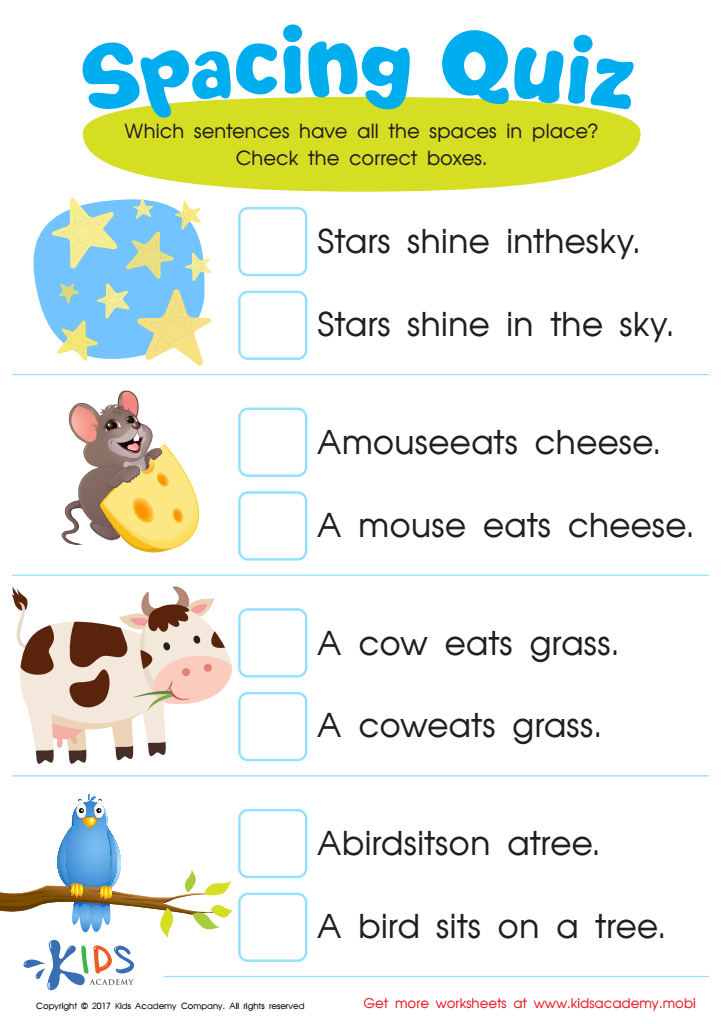

Spacing Quiz Worksheet
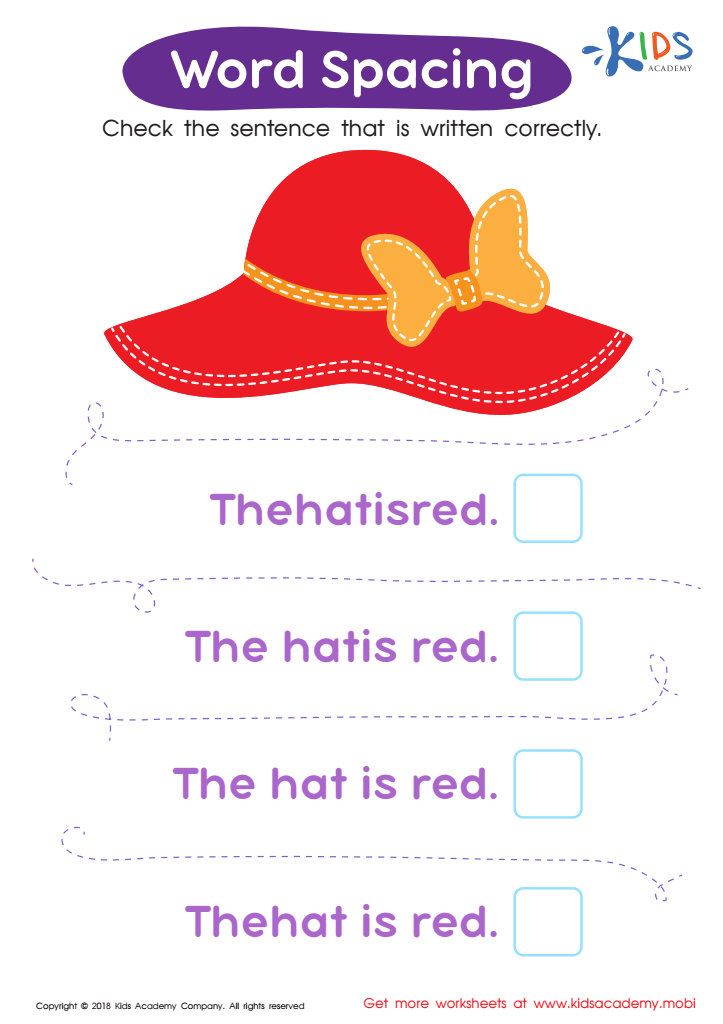

Word Spacing Worksheet
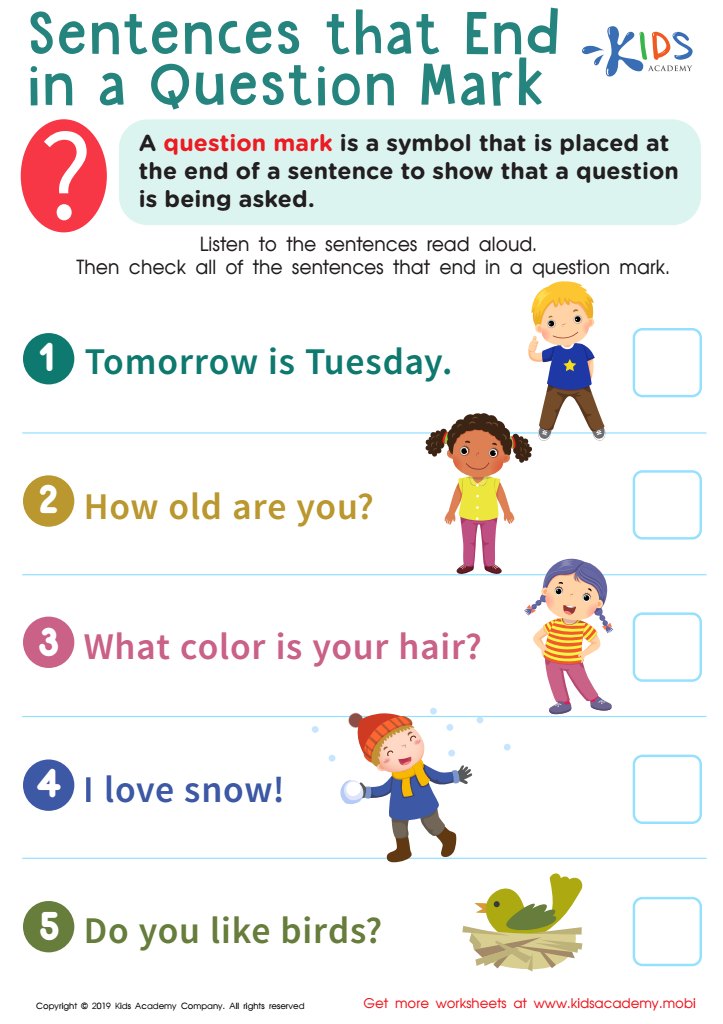

Sentences That End in an Question Mark Worksheet
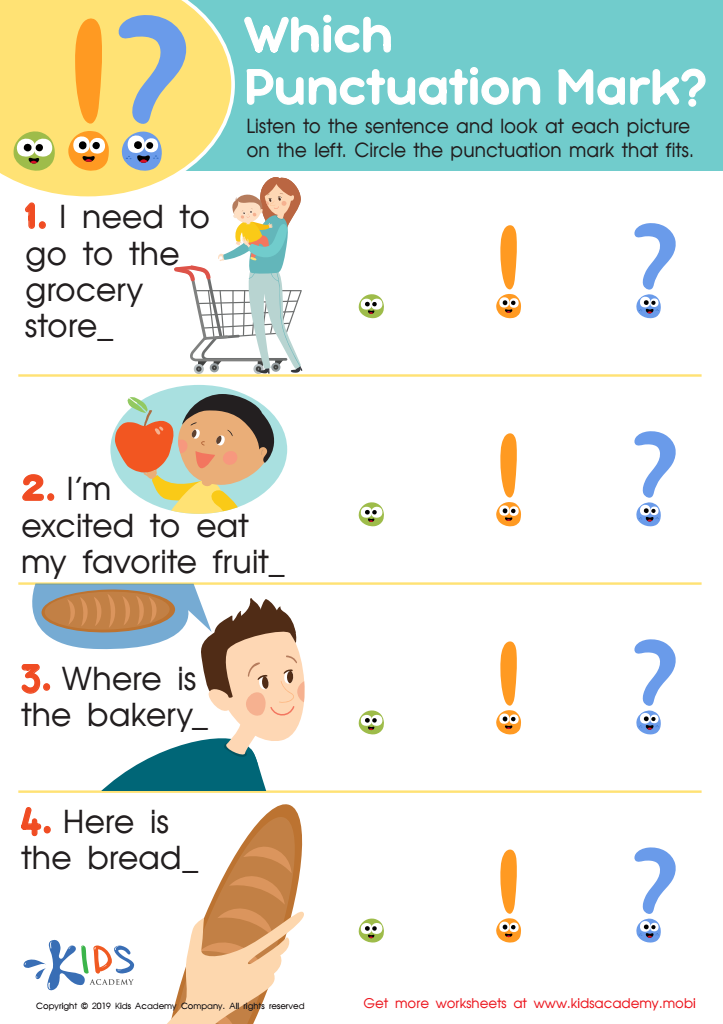

Which Punctuation Mark Worksheet
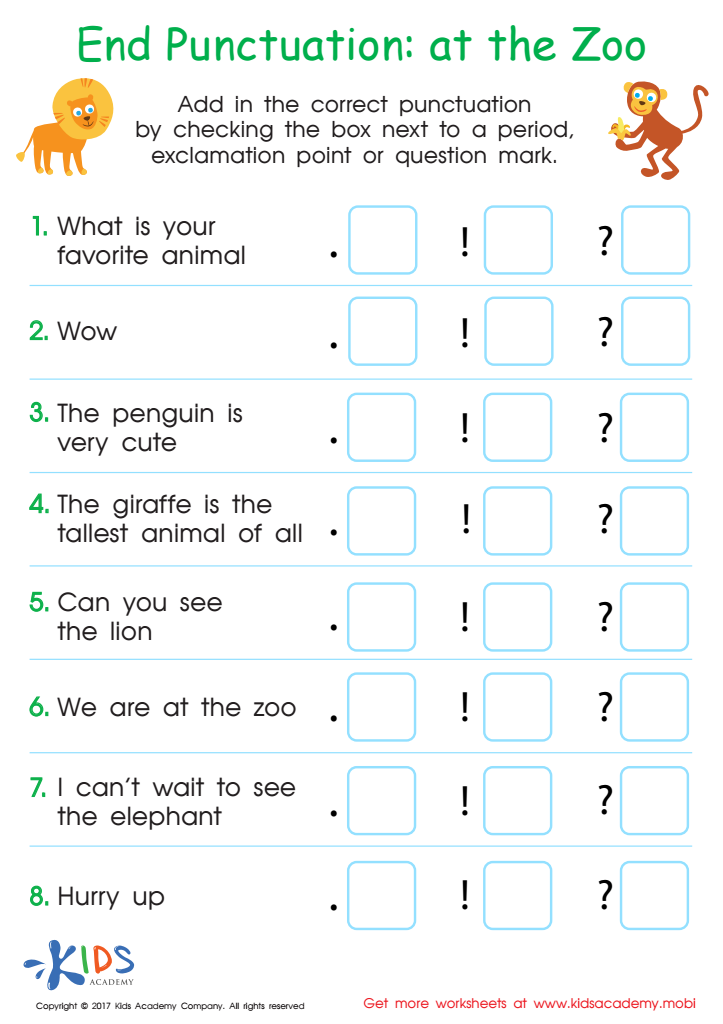

End Punctuation: At the Zoo Worksheet
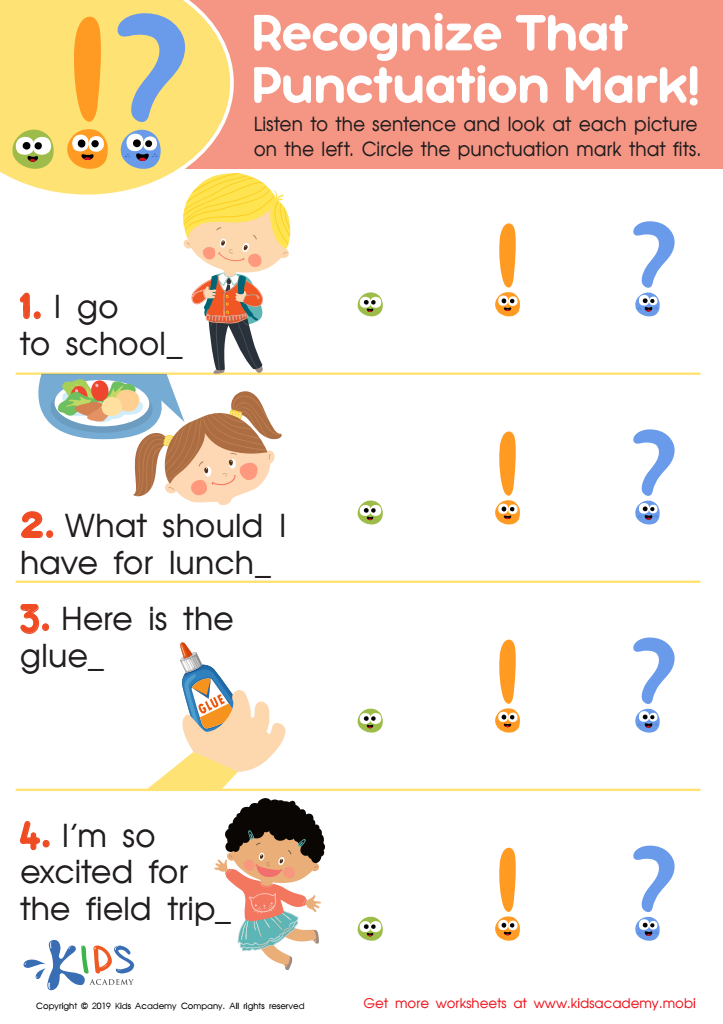

Recognize Punctuation Marks Worksheet
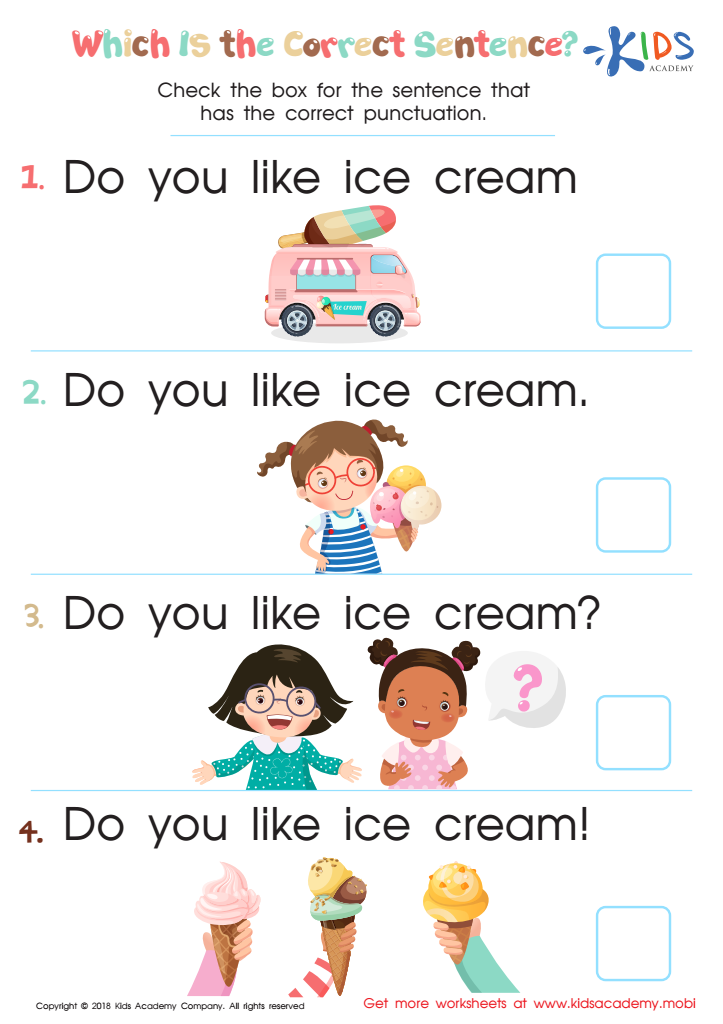

Which is the Correct Sentence? Worksheet
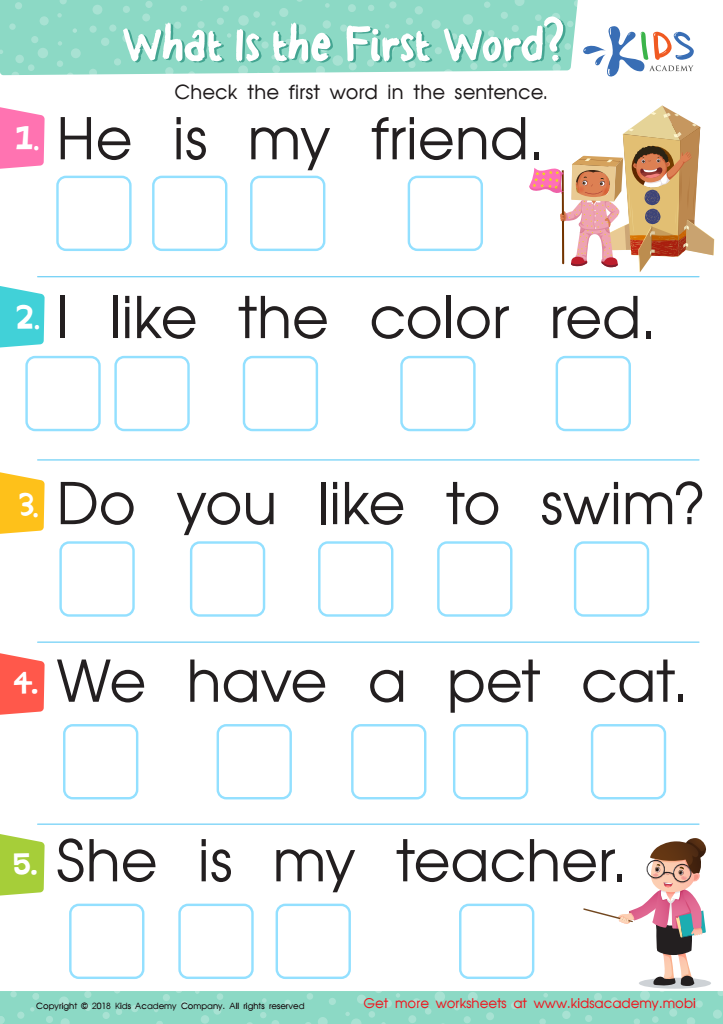

What is the First Word? Worksheet
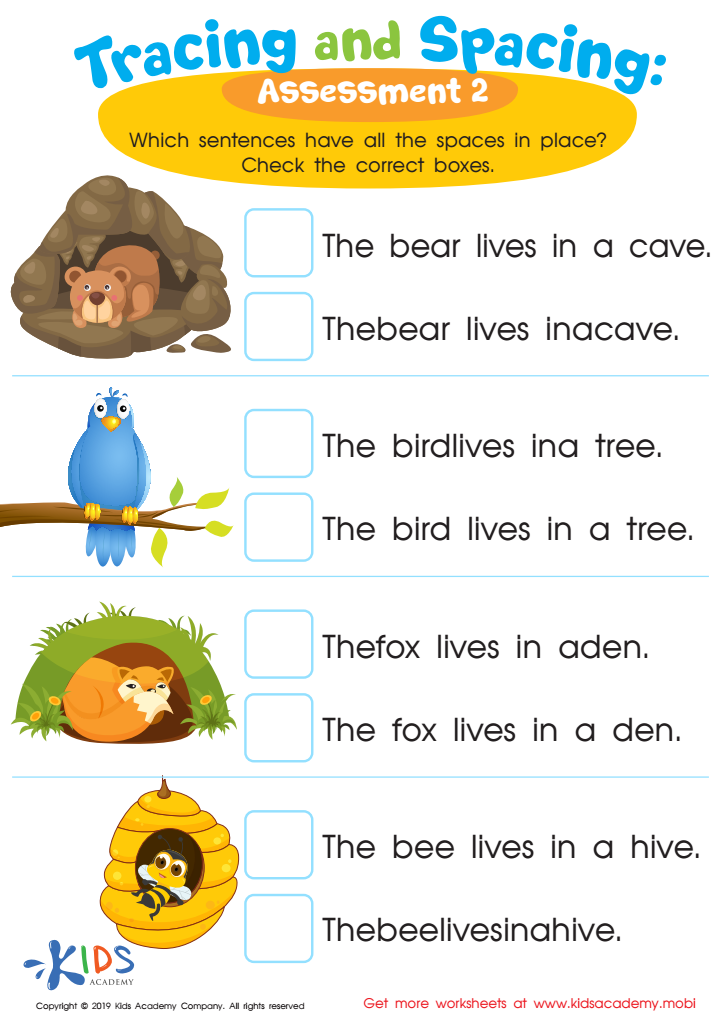

Tracing and Spacing: Assessment 2 Worksheet
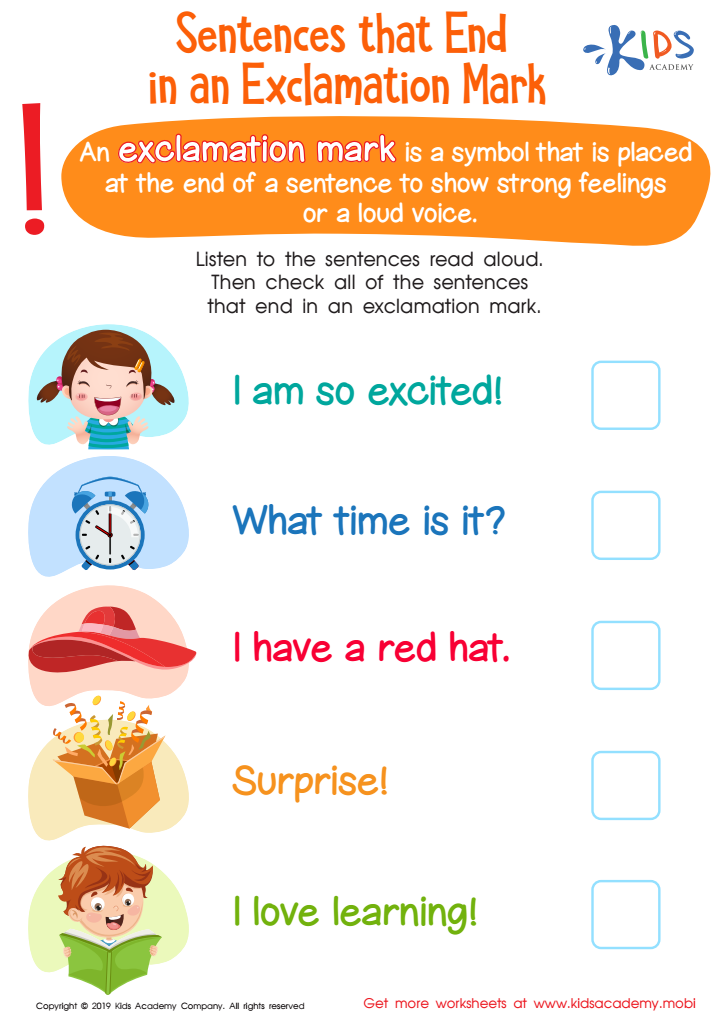

Sentences That End in an Exclamation Mark Worksheet
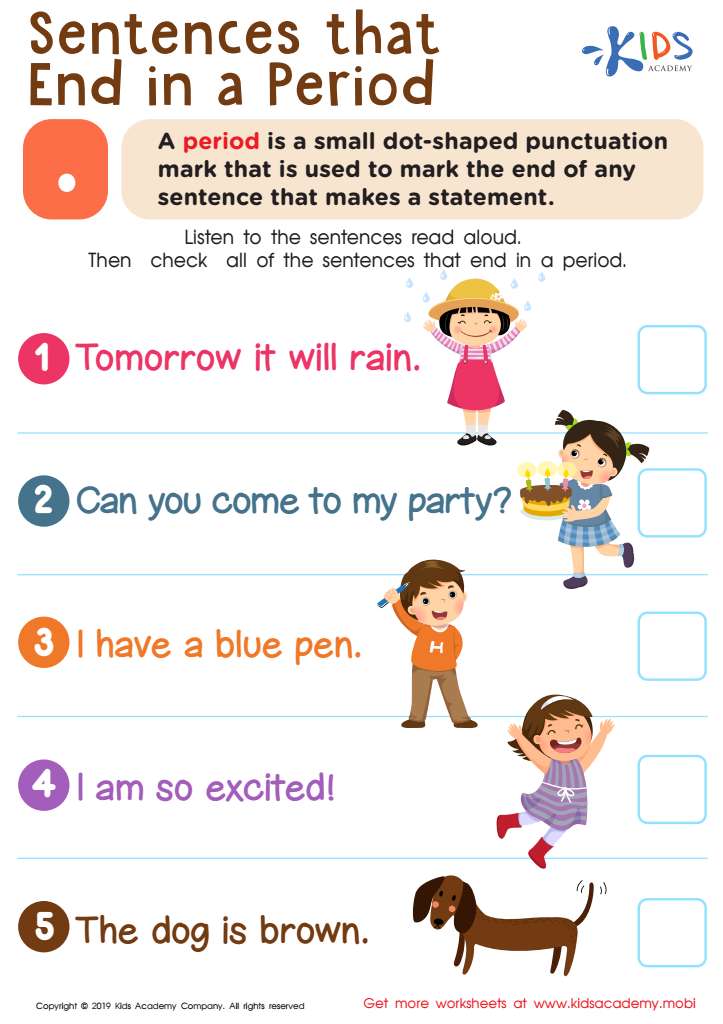

Sentences That End in a Period Worksheet
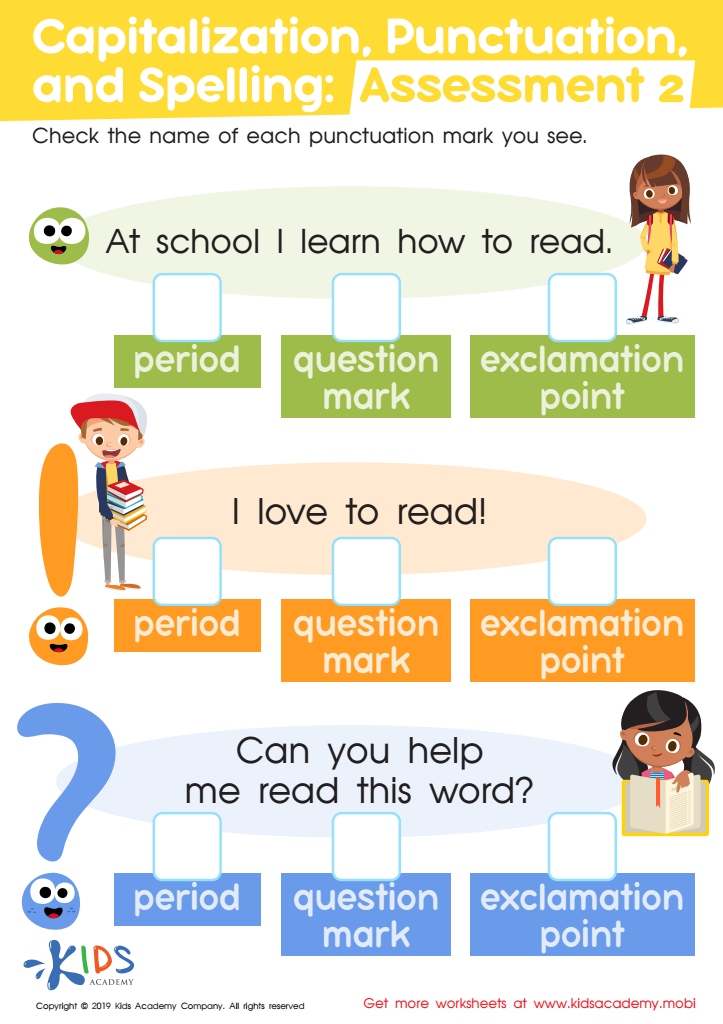

Capitalization. Punctuation. Spelling: Assessment 2 Worksheet
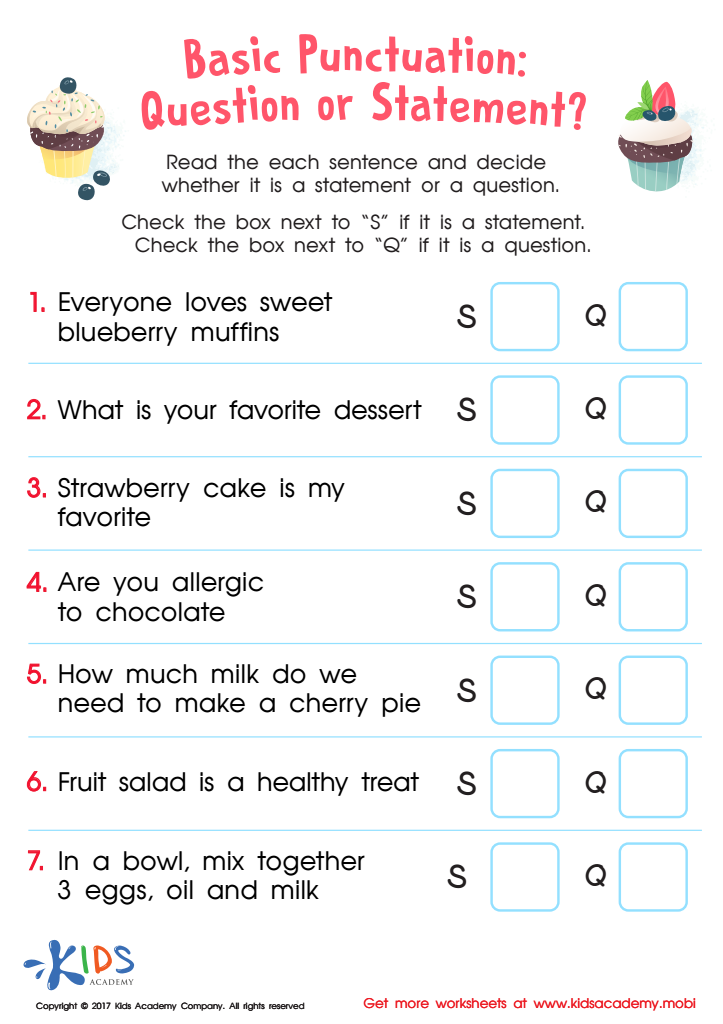

Basic Punctuation: Question or Statement Printable
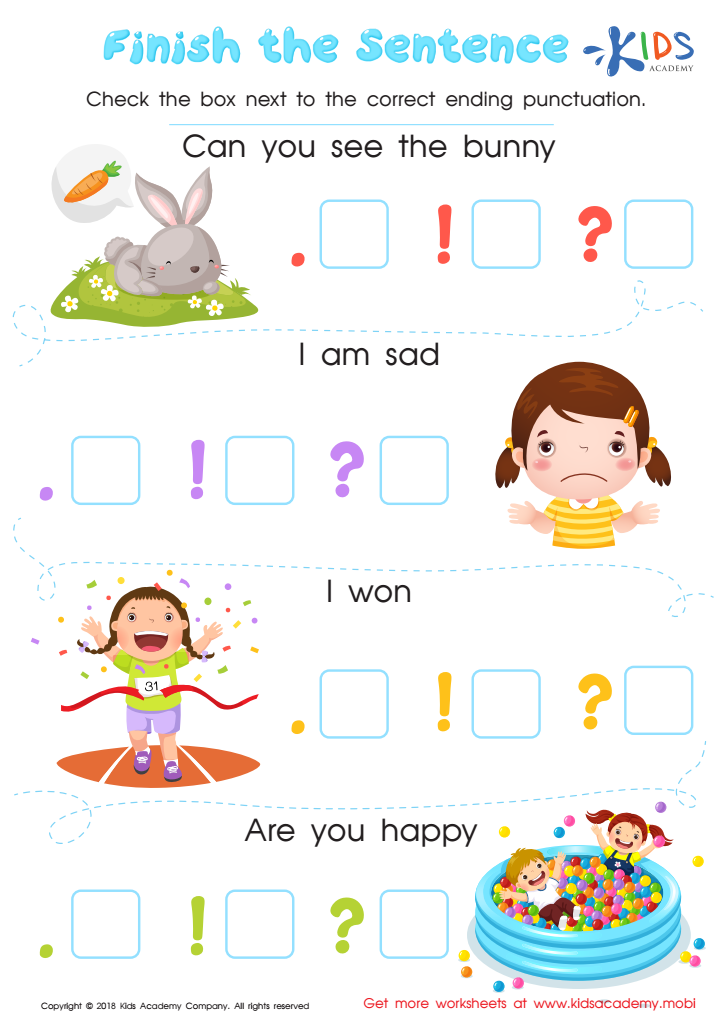

Finish the Sentence Worksheet
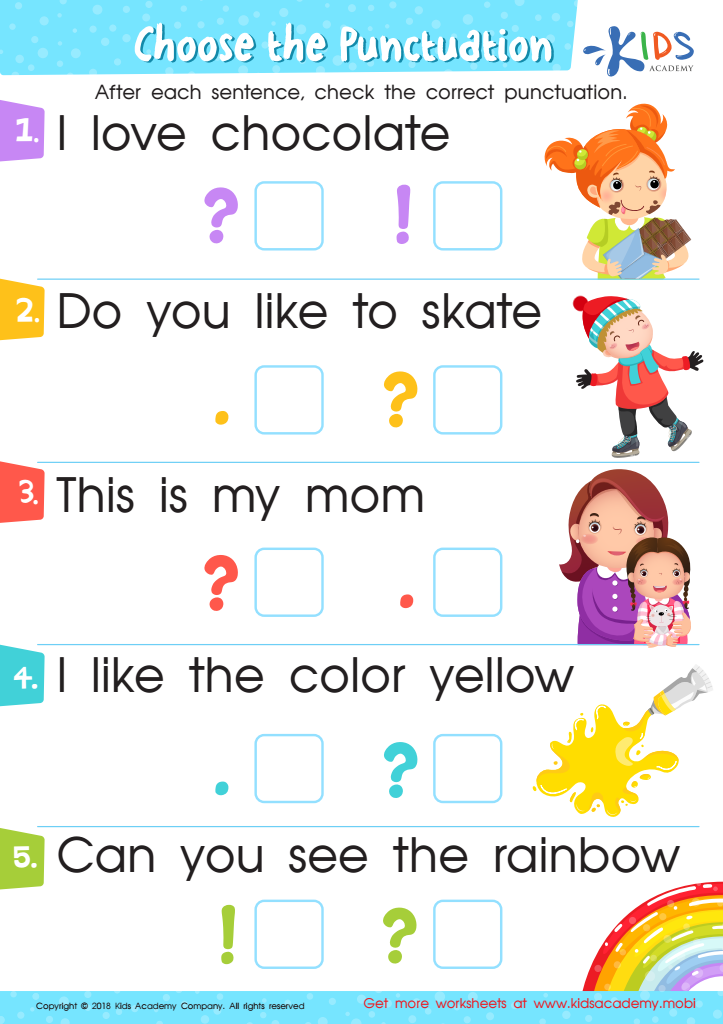

Choose the Punctuation: Assessment Worksheet
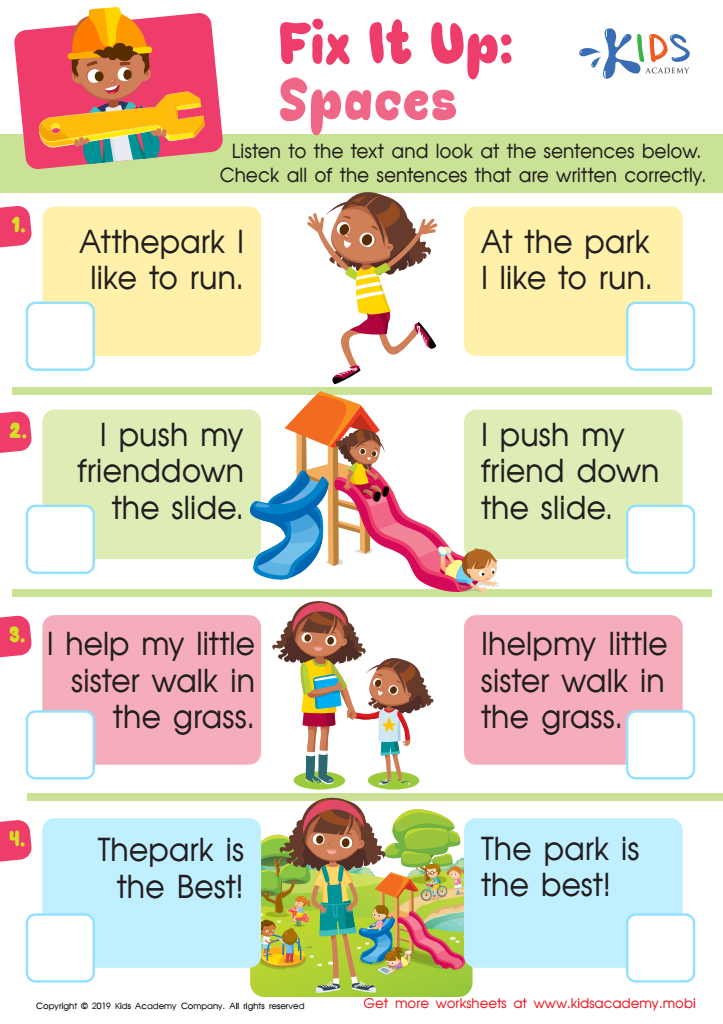

Fix Spaces Worksheet
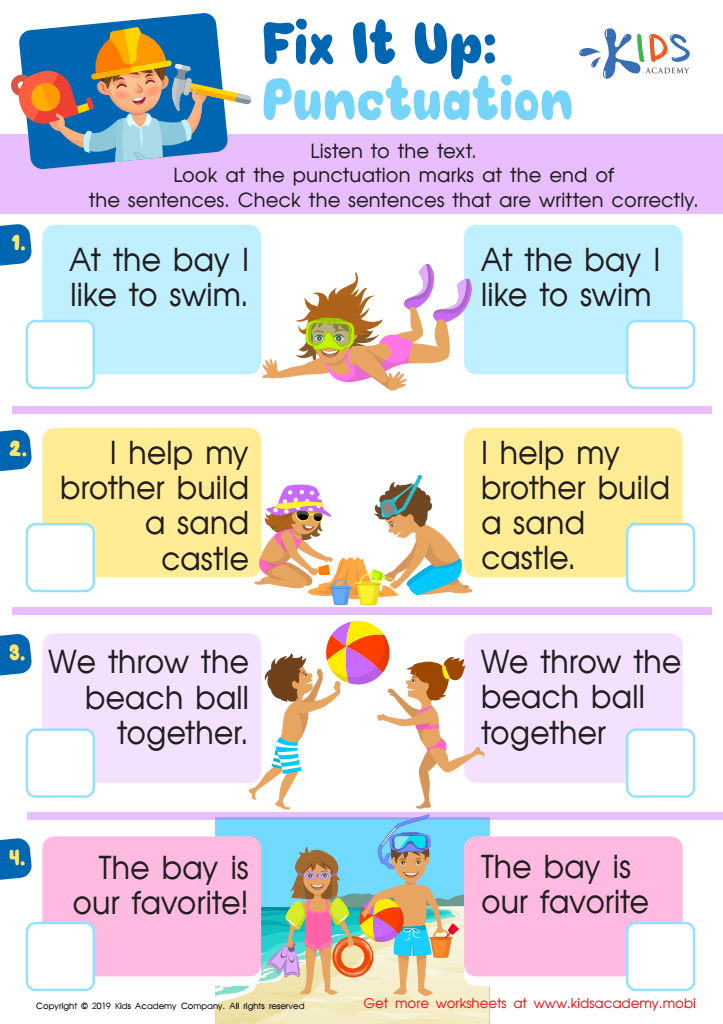

Fix Punctuation Worksheet
Punctuation is a foundational element of written language that significantly impacts young children's literacy development. For ages 5-7, learning punctuation helps them understand the structure and meaning of sentences, fosters clear communication, and aids in cultivating strong reading and writing skills. At this critical age, children are beginning to read and write more independently, and proper punctuation guides them in interpreting texts correctly.
For instance, periods signal the end of a thought, helping with comprehension and maintaining the flow of reading. Question marks and exclamation points introduce nuances in tone, teaching kids how different sentences can convey different emotions or inquiries. Commas organize ideas within sentences, preventing confusion and enhancing clarity.
Teachers and parents who emphasize proper punctuation set children up for long-term academic success. It helps in developing critical analytical skills, like identifying when a sentence doesn't make sense or when a particular emotion is being conveyed incorrectly. This attention to detail in early literacy lays a strong foundation for advanced language skills. Moreover, mastering punctuation boosts children's confidence in their written communication, making them more effective learners and helping them express their ideas more precisely. Thus, investing time and effort in teaching punctuation is integral for overall language development and lays the groundwork for intelligent and articulate future writers and readers.
 Assign to My Students
Assign to My Students
















